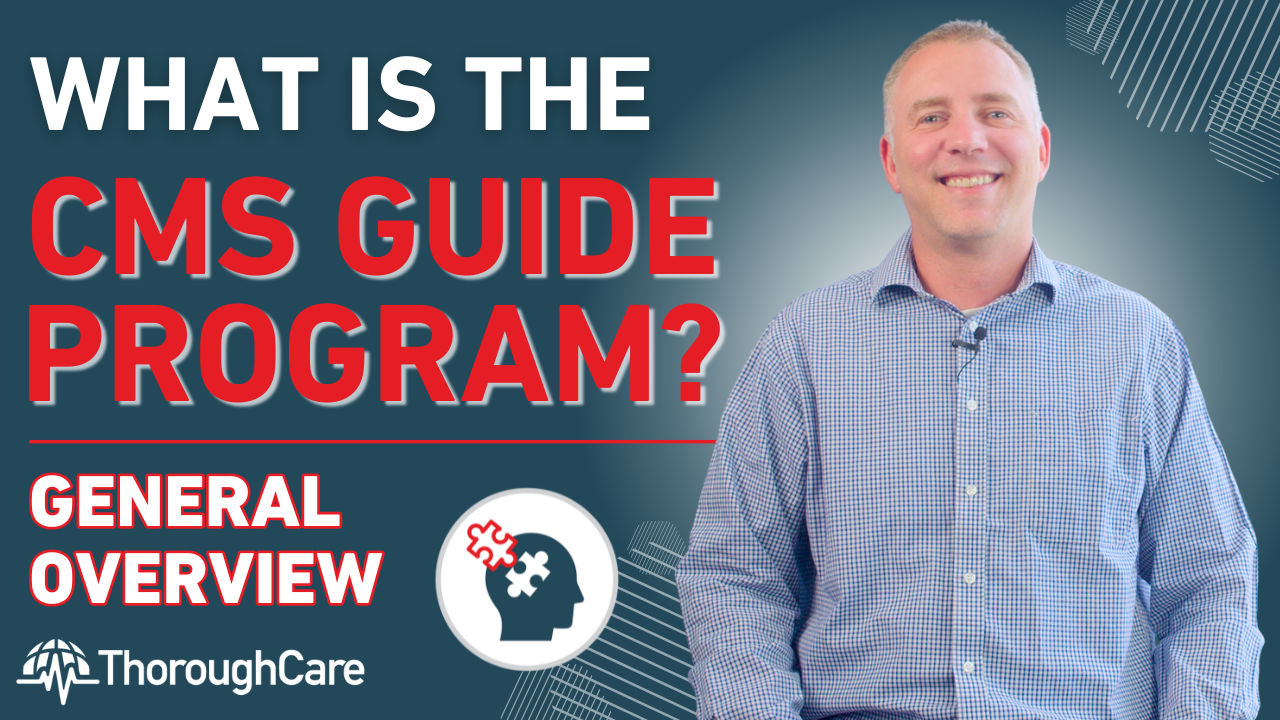What is the GUIDE Program? General Overview
The Centers for Medicare and Medicaid Services has developed a new program to improve dementia care coordination and provide assistance to caregivers.
In this video, we discuss the new CMS GUIDE Program for Patients with Dementia—what it is, how it works, and why it’s a game-changer for patients and caregivers alike!
Dementia affects more than 6.7 million Americans today, and that number is expected to more than double by 2060. Patients with dementia tend to have multiple chronic conditions and experience fragmented care, which can lead to high rates of hospitalization and emergency department visits. Caregivers for these patients often face significant stress due to a combination of emotional, physical, and logistical challenges involved in supporting someone with a progressive, degenerative condition.
What is the CMS GUIDE Program?
GUIDE, which stands for Guiding an Improved Dementia Experience, is an eight-year innovation program aimed at supporting Medicare patients with dementia and their unpaid caregivers. Through this program, patients receive personalized care planning, regular assessments, and access to support resources that help manage the challenges of dementia. The program provides a monthly payment for each beneficiary, along with an additional payment for respite services for those who qualify. The GUIDE model introduces new G codes, with payment rates determined by the complexity of the patient's care needs and the caregiver's status.
Who Can Join the Program?
To promote the development of new dementia care programs, GUIDE has established two model tracks. The first track is for established programs, which launched on July 1, 2024. The second track is designed for new programs, set to launch on July 1, 2025, following a one-year pre-implementation period that allows participants to develop their programs.
Per GUIDE requirements, care teams must include at least a care navigator—who must be trained on dementia-related topics—and a “dementia proficient” clinician who can bill Medicare for evaluation and management (E/M) services.
Clinicians must meet one of the following criteria to be considered dementia proficient: at least 25% of their patients have some form of cognitive impairment, at least 25% are 65 or older, or they specialize in fields such as neurology, geriatrics, or psychiatry.
As for patients, those who have a dementia diagnosis by a participating clinician are eligible if they meet a few extra conditions, including living at home or in a community-dwelling, enrolled in Medicare Parts A and B or qualify for both Medicare and Medicaid, not enrolled in Medicare Advantage or Special Needs Plans (SNPs), not residing in a long-term nursing home, or not receiving hospice or PACE services.
If a care team is unable to meet these GUIDE requirements, they can contract with other Medicare providers, suppliers and organizations. These partner organizations can include places like community-based organizations, home health agencies, physical/occupational therapy practices and more.
The GUIDE Model sets a standard approach to comprehensive, coordinated dementia care. Providers must offer a list of clinical and non-clinical service components, either directly or through a partner organization. These components range from creating care plans and providing ongoing monitoring and support to arranging for respite services and caregiver education.
The CMS Guide program is transforming dementia care by offering structured, compassionate support for both patients and caregivers. If you're interested in learning more about this innovative program, how it could benefit your practice, or for a software solution to help implement a GUIDE program, please contact ThoroughCare for more information. 


.jpg)